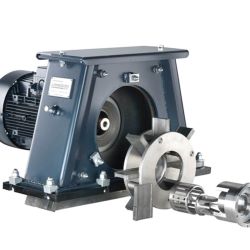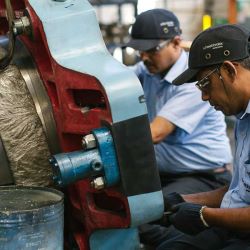A leading manufacturer of automotive springs and stabilizers in Turkey, has invested in an automated spring stress peening machine from Wheelabrator to achieve the highest production qualities faster.
Stress peening means that a pre-defined load is applied to each spring during peening, improving its long life fatigue strength and enabling a lighter design.
The SRS-4 stress peening machine from Wheelabrator ensures a fast and consistent peening process with varying degrees of automation, and is a well-established and trusted solution for automotive suspension springs. The new SRS-4 replaces an older, non-Wheelabrator spinner-hanger type machine that has been modified to enable stress peening.
This older machine was unable to meet increasing quality requirements and output targets. The new machine’s compact design is centred round a “satellite turntable” with five separate blast chambers with two satellites per chamber that hold, compress and rotate one spring each. This means pairs of springs are “clocked” through the machine at a steady, continuous pace, with loading and unloading of one chamber happening while peening takes place in two others.
Wheelabrator’s SRS-4 machine can peen a pair of springs in only 16 seconds, resulting in an output of up to 450 springs per hour, with blast cycles of neighbouring chambers overlapping (depending on condition and type of parts, production methods, peening requirements etc.). Loading and unloading can be carried out by a robot, manipulator, automated module, or - as is currently the case at the Turkish site - manually.
The machine therefore lends itself to seamless and flexible integration in highly automated production lines. The machine can accommodate coil springs with a maximum uncompressed length of 600mm and a minimum compressed length of 150mm. Four powerful, indirect-drive Wheelabrator U70 blast wheels with 22kW each then blast the springs from all sides, thanks to variable worktable rotation speeds between 24 and 45rpm. The Turkish manufacturer placed the order for the new machine with the Wheelabrator Technology Centre (TC) in Zürich towards the end of 2015 and received the SRS-4 in July 2016. A full hand-over followed in September.


